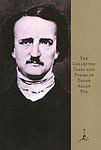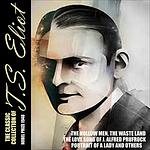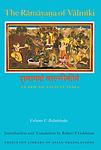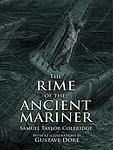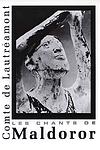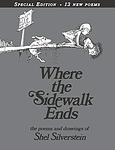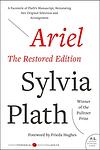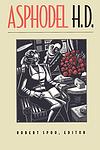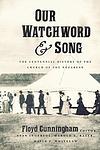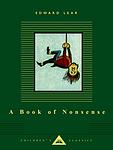The Greatest "Fictional Location, Poetry" Books of All Time
Click to learn how this list is calculated.
This list represents a comprehensive and trusted collection of the greatest books. Developed through a specialized algorithm, it brings together 300 'best of' book lists to form a definitive guide to the world's most acclaimed books. For those interested in how these books are chosen, additional details can be found on the rankings page.
Genres
The "Fictional Location" category in books encompasses a broad range of literary works that are set in places conjured entirely from the imagination of the author, rather than real-world locations. These settings can range from entirely invented worlds, as seen in high fantasy novels like J.R.R. Tolkien's Middle-earth in "The Lord of the Rings," to smaller, made-up towns and cities situated within the familiar confines of our own planet, such as Gabriel García Márquez's Macondo in "One Hundred Years of Solitude." The allure of this category lies in the author's ability to craft unique environments that operate under their own set of rules, cultures, and histories, providing a rich backdrop for storytelling that can explore themes and narratives unconstrained by the limitations of reality. Whether these locations offer an escape to magical realms, dystopian futures, or alternate histories, books in the "Fictional Location" category invite readers to embark on journeys to places that exist only in the far reaches of the writer's creativity and the reader's imagination.
Poetry is a genre of literature that uses language to evoke emotion, paint vivid imagery, and convey complex ideas through the use of rhythm, meter, and sound. It is characterized by its use of figurative language, such as metaphors and similes, and its ability to capture the essence of a moment or experience in a concise and powerful way. Poetry can take many forms, including sonnets, haikus, free verse, and spoken word, and can cover a wide range of topics, from love and nature to politics and social issues. As a category for books, poetry offers readers a unique and intimate glimpse into the human experience, inviting them to explore the beauty and complexity of language and the world around them.
Countries
Date Range
Reading Statistics
Click the button below to see how many of these books you've read!
Download
If you're interested in downloading this list as a CSV file for use in a spreadsheet application, you can easily do so by clicking the button below. Please note that to ensure a manageable file size and faster download, the CSV will include details for only the first 500 books.
Download-
1. The Divine Comedy by Dante Alighieri
In this epic poem, the protagonist embarks on an extraordinary journey through Hell (Inferno), Purgatory (Purgatorio), and Paradise (Paradiso). Guided by the ancient Roman poet Virgil and his beloved Beatrice, he encounters various historical and mythological figures in each realm, witnessing the eternal consequences of earthly sins and virtues. The journey serves as an allegory for the soul's progression towards God, offering profound insights into the nature of good and evil, free will, and divine justice.
-
2. The Aeneid by Virgil
This epic poem tells the story of Aeneas, a Trojan who travels to Italy, where he becomes the ancestor of the Romans. It includes a series of prophecies about Rome's future and the deeds of heroic individuals, and is divided into two sections, the first illustrating the hero's journey and the second detailing the wars and battles that ensue as Aeneas attempts to establish a new home in Italy. The narrative is deeply imbued with themes of duty, fate, and divine intervention.
-
3. Paradise Lost by John Milton
"Paradise Lost" is an epic poem that explores the biblical story of Adam and Eve's fall from grace in the Garden of Eden. It delves into their temptation by Satan, their subsequent expulsion, and the consequences of their disobedience. The narrative also provides a complex portrayal of Satan as a rebellious angel, who, after being cast out of Heaven, seeks revenge by causing mankind's downfall. The poem is a profound exploration of free will, divine justice, and the human struggle with good and evil.
-
4. The Complete Tales and Poems of Edgar Allan Poe by Edgar Allan Poe
This collection brings together all of the author's most famous works, including poems, short stories, and novellas. Known for his macabre and gothic storytelling, the author's works are filled with themes of death, love lost, and human frailty. Notable inclusions are the haunting poem "The Raven," the chilling stories "The Tell-Tale Heart" and "The Fall of the House of Usher," and his only complete novel, "The Narrative of Arthur Gordon Pym."
-
5. The Waste Land by T. S. Eliot
"The Waste Land" is a long poem that presents a bleak and despairing view of the world following the devastation of World War I. The poem is divided into five parts and uses a wide range of literary and cultural references, as well as multiple narrators, to depict a world in ruins. It explores themes of disillusionment, despair, and the decline of civilization, and is often considered a seminal work of modernist literature.
-
6. Mahabharata by Vyasa
The book is an English translation of the ancient Indian epic, originally written in Sanskrit, which tells the story of a great war that took place between two groups of cousins, the Kauravas and the Pandavas. The narrative explores themes of duty, righteousness, and honor while also featuring a rich array of gods, goddesses, and supernatural beings. It is not only a tale of war and conflict, but also a profound philosophical and spiritual treatise, containing the Bhagavad Gita, a sacred text of Hindu philosophy.
-
7. Metamorphoses by Ovid
"Metamorphoses" is a classical epic poem that narrates the history of the world from its creation to the deification of Julius Caesar within a loose mythico-historical framework. The narrative is filled with stories of transformation, focusing on myths and legends of the Greek and Roman world. The tales, which include the stories of Daedalus and Icarus, King Midas, and Pyramus and Thisbe, among others, are all linked by the common theme of transformation, often as a punishment or reward from the gods.
-
8. Beowulf by Unknown
"Beowulf" is an Old English epic poem that tells the story of the eponymous hero, a Geatish warrior who comes to the aid of Hrothgar, the king of the Danes, whose mead hall is under attack by a monster known as Grendel. Beowulf fights and defeats Grendel and his mother, earning the gratitude and friendship of Hrothgar. Later in his life, Beowulf becomes king of the Geats and faces his final battle with a deadly dragon. The poem explores themes of heroism, fate, and mortality, and is considered one of the most important works of Old English literature.
-
9. Ramayana by Valmiki
The book is an ancient Indian epic poem which follows the journey of Prince Rama as he embarks on a quest to rescue his beloved wife Sita from the clutches of Ravana, the demon king. The narrative explores themes of morality, dharma (duty/righteousness), and the struggle between good and evil. The story is not just about Rama's battle against Ravana, but also his spiritual journey and the importance of upholding one's duties and responsibilities.
-
10. The Rime of the Ancient Mariner by Samuel Taylor Coleridge
"The Rime of the Ancient Mariner" is a classic English poem that tells the story of a mariner who kills an albatross, bringing bad luck and hardship on himself and his ship's crew. The mariner's journey becomes a spiritual quest as he is forced to confront the consequences of his actions and the nature of redemption. The poem is known for its vivid and imaginative language, including the famous line, "Water, water, everywhere, Nor any drop to drink."
-
11. The Faerie Queene by Edmund Spenser
"The Faerie Queene" is an epic allegorical poem that follows several medieval knights, representing various virtues, as they navigate quests assigned by the Faerie Queene. The narrative is deeply imbued with Christian symbolism and Elizabethan political allegory. Each book in the series focuses on a particular virtue and the knight who embodies it, presenting a complex, interconnected tapestry of moral, ethical, and political conduct. The poem is renowned for its intricate allegories, rich characterization, and the creation of a unique verse form known as the Spenserian stanza.
-
12. Maldoror (Les Chants de Maldoror) by Comte de Lautréamont
"Maldoror (Les Chants de Maldoror)" is a poetic novel that explores the dark and surreal world of the protagonist, Maldoror, a figure of absolute evil who rejects God and conventional morality, often expressing a violent hatred towards humanity. The book is composed of six cantos filled with bizarre and often shocking imagery, which depict Maldoror's experiences in a world that he perceives as chaotic and indifferent. The novel is known for its vivid and often disturbing exploration of the human condition and its subversion of traditional literary norms.
-
13. Where the Sidewalk Ends by Shel Silverstein
This book is a collection of whimsical and often thought-provoking poems and illustrations that explore a wide range of topics from everyday childhood experiences to fantastical, imaginative scenarios. The poems, paired with distinctive line drawings, are known for their humor, creativity, and the author's unique perspective on life. They often contain a deeper message or moral, making the book a beloved classic for both children and adults.
-
14. Tender Buttons by Gertrude Stein
"Tender Buttons" is an avant-garde collection of prose poetry, divided into three sections: "Objects," "Food," and "Rooms." The book is renowned for its experimental, stream-of-consciousness style, and its abstract, often nonsensical language. It challenges traditional narrative and linguistic structures, creating a unique exploration of everyday objects and experiences. The work is a significant contribution to modernist literature and a pioneering example of feminist writing.
-
15. The Palm At The End Of The Mind by Wallace Stevens
"The Palm at the End of the Mind" is a collection of selected poems and a play that delves into the intricate relationship between reality and imagination. The works within this anthology explore the power of the human mind to create and perceive beauty, truth, and meaning in the world. Through a blend of philosophical musings and vivid imagery, the poems challenge readers to consider the role of poetry and art in shaping one's understanding of existence. The pieces in this compilation reflect on themes of nature, the self, and the divine, offering a profound meditation on the transformative potential of language and thought.
-
16. Ariel by Sylvia Plath
"Ariel" is a collection of poetry which explores the complexities of the human psyche, mental health, female identity, and the personal struggles of life. The poems are known for their vivid and often disturbing imagery, reflecting the author's own experiences with depression and suicidal thoughts. The collection is also notable for its exploration of the author's relationship with her father, her feelings of betrayal and abandonment, and her struggles with motherhood.
-
17. Asphodel by Hilda Doolittle
"Asphodel" is a semi-autobiographical novel that explores the complexities of a love triangle involving the protagonist, her husband, and another woman. Set during the First World War, the story is a vivid portrayal of the protagonist's emotional struggles as she navigates her relationships and her own identity, while also dealing with the societal and political pressures of the time. The novel is known for its rich, poetic language and its exploration of themes such as love, betrayal, identity, and war.
-
18. The Temple by George Herbert
"The Temple" is a collection of religious poetry that explores the complexities of faith and the intimate relationship between the individual and the divine. Through a series of richly metaphorical poems, the work delves into themes of spiritual struggle, redemption, and the quest for grace. The poet uses the conceit of a church or temple to represent both the human soul and the broader Christian church, examining the tensions between earthly imperfections and the aspiration for heavenly perfection. The poems are characterized by their intricate wordplay, deep theological insight, and the personal, often introspective voice of the speaker, who seeks to reconcile the trials of earthly life with the promise of eternal salvation.
-
19. The Road by Harry Martinson
"The Road" is a reflective and poignant narrative that delves into the life of a young man who leaves his rural home to explore the urban landscape, seeking new experiences and understanding of the world. The protagonist's journey is both literal and metaphorical, as he navigates through various cities and encounters diverse people, each adding depth to his understanding of society and himself. The novel intricately portrays themes of isolation, the search for meaning, and the impact of industrialization on human connections and the environment, capturing the existential dilemmas of modern life.
-
20. Idyls Of The King by Alfred Lord Tennyson
"Idyls of the King" is a poetic retelling of the Arthurian legends, focusing on the lives and adventures of King Arthur and his Knights of the Round Table. The narrative, written in a series of twelve poems, explores themes of chivalry, honor, and the tragic consequences of betrayal and infidelity. The collection delves into the moral and spiritual dilemmas faced by the characters, including the noble King Arthur, the valiant Sir Lancelot, and the virtuous Queen Guinevere, culminating in the disintegration of the idealistic Camelot. Through its lyrical and evocative language, the work captures the essence of medieval romance and the enduring allure of mythic heroism.
-
21. Song of Songs by Christian Church
"Song of Songs" is a poetic book from the Old Testament of the Bible that explores the theme of love and the beauty of human relationships. It is a dialogue between two lovers, a man and a woman, expressing their deep affection and desire for each other. The book is often interpreted allegorically, symbolizing the love between God and his people, or Christ and the Church.
-
22. Edward Lear's Book of Nonsense by Edward Lear
This book is a collection of limericks and other humorous verses, accompanied by whimsical illustrations. It features a variety of absurd characters and situations, often involving animals and people in bizarre, nonsensical scenarios. The book is known for its playful use of language, including invented words and phrases, and its emphasis on the joy of silliness and the absurd. It's a classic of children's literature, appreciated by both kids and adults for its wit and creativity.
-
23. The Song of Hiawatha by Henry Wadsworth Longfellow
"The Song of Hiawatha" is an epic poem that tells the story of Hiawatha, a Native American hero and his love for Minnehaha, a Dakota woman. The narrative follows Hiawatha's life from his miraculous birth, through his childhood, his exploits, and his courtship and marriage to Minnehaha. It also portrays his efforts to improve the lives of his people, his prophetic teachings, and his eventual departure to the Isles of the Blessed. The poem also includes numerous references to Native American legends and geography.
-
24. Body Rags by Galway Kinnell
"Body Rags" is a collection of poetry that explores the depth of human experience, from the physicality of everyday life to the metaphysical questions of existence. The author delves into themes of love, death, and the natural world, evoking a sense of profound connection to the universe and the human condition. The poems are marked by their raw emotion, vivid imagery, and a deep understanding of the complexities of life.
-
25. Sir Gawain and the Green Knight by Simon Armitage
The book is a modern translation of a 14th century alliterative poem, which tells the story of Sir Gawain, a knight of King Arthur's Round Table. The story begins when a mysterious Green Knight arrives at Arthur's court, challenging the knights to a beheading game. Gawain accepts the challenge and beheads the Green Knight, who surprisingly survives and tells Gawain to seek him out a year later to return the blow. The book follows Gawain's journey, filled with trials and temptations, as he tries to fulfill his promise to the Green Knight, maintaining his honor and chivalry.
Reading Statistics
Click the button below to see how many of these books you've read!
Download
If you're interested in downloading this list as a CSV file for use in a spreadsheet application, you can easily do so by clicking the button below. Please note that to ensure a manageable file size and faster download, the CSV will include details for only the first 500 books.
Download


